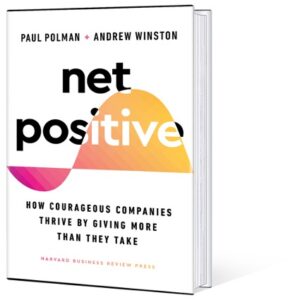I’ve been looking back at the last IPCC assessment report from 2022 (yes, a climate nerd moment). Deniers may say the science is muddy, but the “Summary for Policymakers” is darn clear and a great reminder of where we are. Here are 10 big takeaways/reminders and a few comments on what may have changed in 2 years:
𝟏. 𝐆𝐇𝐆 𝐞𝐦𝐢𝐬𝐬𝐢𝐨𝐧𝐬 𝐚𝐫𝐞 𝐬𝐭𝐢𝐥𝐥 𝐫𝐢𝐬𝐢𝐧𝐠, “across all major sectors.” But the rate of growth was slower in the 2010s than the 2000s. So we’re losing slower. Yay?
𝟐. 𝐒𝐭𝐨𝐩𝐩𝐢𝐧𝐠 𝐚𝐭 𝟏.𝟓𝐂 𝐢𝐬 𝐮𝐧𝐥𝐢𝐤𝐞𝐥𝐲 (they were understated). Even 2C requires “rapid acceleration of mitigation efforts.” Every year that goes by, the pace of acceleration needed rises. 1.5C is nearly impossible now.
𝟑. 𝐈𝐧𝐞𝐪𝐮𝐚𝐥𝐢𝐭𝐲 𝐢𝐬 𝐨𝐛𝐯𝐢𝐨𝐮𝐬. The richest 10% of households contribute “disproportionately”, but climate action can reduce inequality.
𝟒. 𝐖𝐞 𝐡𝐚𝐯𝐞 𝐚𝐧 𝐢𝐧𝐟𝐫𝐚𝐬𝐭𝐫𝐮𝐜𝐭𝐮𝐫𝐞 𝐩𝐫𝐨𝐛𝐥𝐞𝐦. “The lifetime of existing and planned fossil fuel infrastructure exceeds [the 1.5C budget].” This is a gut punch. Is this still as true, given how fast some clean tech is coming on line? A related conclusion was “risk of lock-in” in inefficient buildings. Some improvement in this I think — heavy industry infrastructure, like steel and cement plants, are increasingly using low-carbon techs.
𝟓. 𝐈𝐭’𝐬 𝐜𝐡𝐞𝐚𝐩𝐞𝐫 𝐭𝐨 𝐚𝐜𝐭 𝐭𝐡𝐚𝐧 𝐝𝐨 𝐧𝐨𝐭𝐡𝐢𝐧𝐠. “The economic benefit of limiting to 2C…exceeds cost of mitigation”. Costs of clean techs keep dropping, and there are great options “feasible to deploy at scale”.
𝟔. 𝐁𝐮𝐭 𝐰𝐞’𝐫𝐞 𝐧𝐨𝐭 𝐬𝐩𝐞𝐧𝐝𝐢𝐧𝐠 𝐞𝐧𝐨𝐮𝐠𝐡. “tracked financial flows fall short of levels needed [for] mitigation.” Less true now, but still true: the world spent ~$2 trillion on clean tech in 2023…but we need $5T per year to even consider 1.5C.
𝟕. 𝐖𝐞 𝐧𝐞𝐞𝐝 “𝐩𝐨𝐥𝐢𝐜𝐲 𝐩𝐚𝐜𝐤𝐚𝐠𝐞𝐬”, which I read as systems thinking and partnership/cooperation (a main theme in my book Net Positive).
𝟖. 𝐖𝐞 𝐧𝐞𝐞𝐝 𝐦𝐨𝐫𝐞 𝐬𝐩𝐞𝐞𝐝 𝐚𝐧𝐝 𝐬𝐜𝐚𝐥𝐞, i.e., “coordinated action throughout value chains to promote all mitigation options”, including deep changes in how we make things, energy use, circularity, etc.
𝟗. 𝐓𝐡𝐞 𝐬𝐡𝐢𝐟𝐭 𝐰𝐢𝐥𝐥 𝐫𝐞𝐪𝐮𝐢𝐫𝐞 𝐛𝐞𝐡𝐚𝐯𝐢𝐨𝐫 𝐜𝐡𝐚𝐧𝐠𝐞. Consumption needs to be on the table, especially among that richest 10% creating most of the emissions. I haven’t seen a lot of appetite to really talk about consumption. There’s more noise about “Degrowth” agendas, but those are incredibly hard to pitch to people (see France protests on green policies)
𝟏𝟎 …𝐚𝐧𝐝 𝐫𝐞𝐪𝐮𝐢𝐫𝐞𝐬 𝐜𝐚𝐫𝐛𝐨𝐧 𝐜𝐚𝐩𝐭𝐮𝐫𝐞. People may not realize that massive sequestration is already heavily built into the models. By latter half of century, we have to do this at scale (including planting trees, capturing carbon in soils, using biomass fuels, and outright capture from the air).
Two years ago, the news on this assessment was a bit odd, saying that net zero and 1.5 were “possible”, which was a highly optimistic reading.
The problem we face is enormous, and actions need to match that scale. The scientific community keeps making that very clear.
We should listen, eh?
(See some discussion on LinkedIn, with comments about the 10th point in particular. People have strong opinions about sequestration and the right pathways — a blog for another day…)
- If you enjoyed this post, please pass it on. Subscribe to get all of Andrew’s articles in your in-box.
- Follow Andrew on LinkedIn (I’ve exited Facebook and paused Twitter for now)
- Join the Net Positive movement or to expand your learning, check out our new Net Positive online classes and other executive education offerings.



